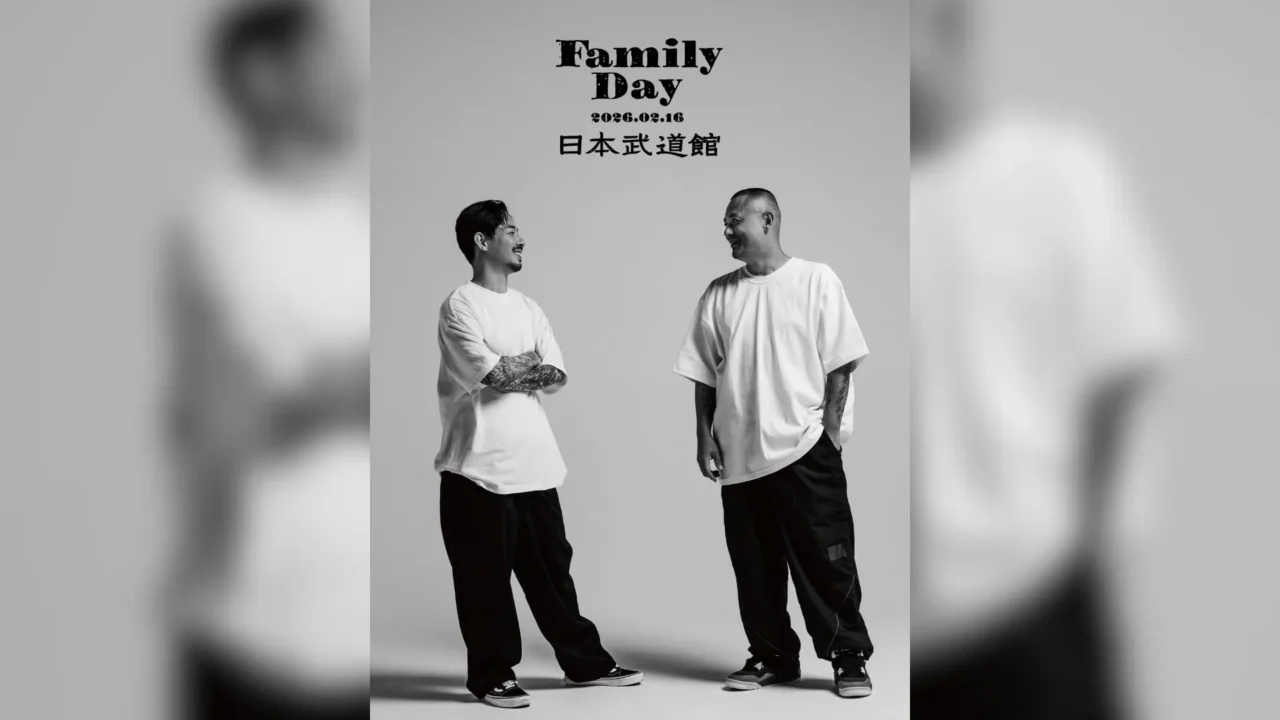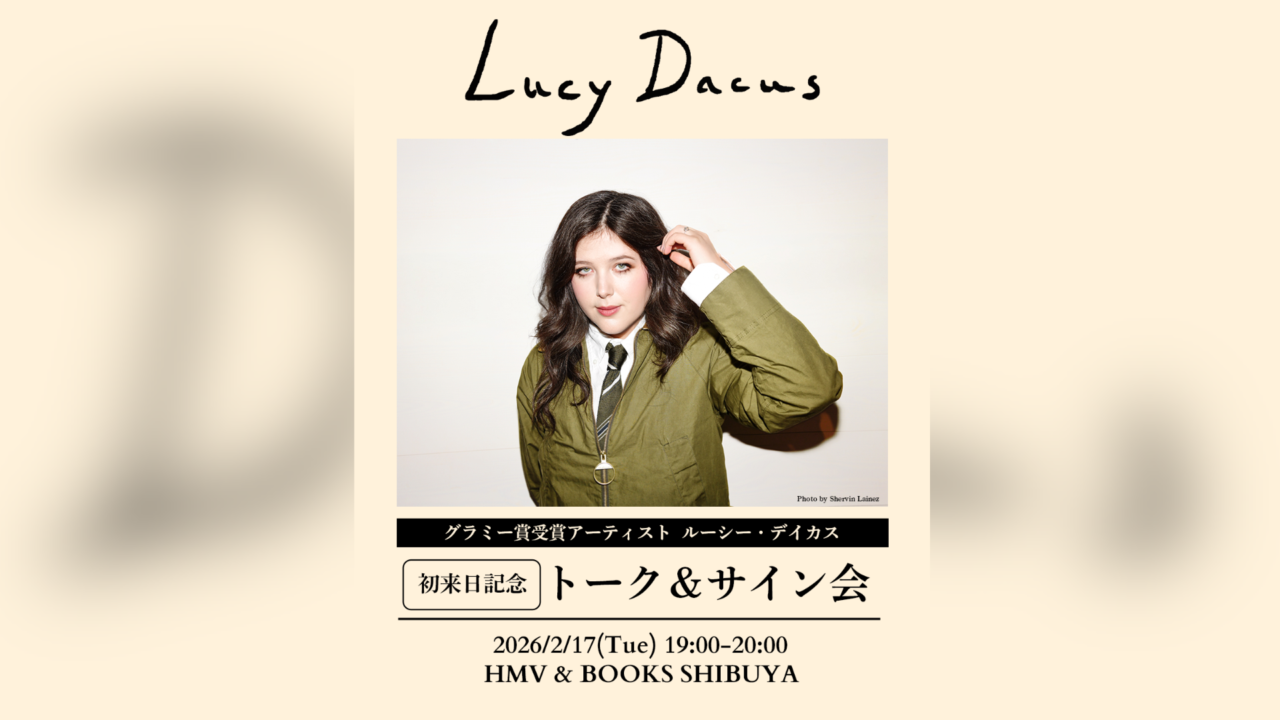Pasocom Music Club and LAUSBUB both aim broadly for “techno” and share the commonality of starting music with a friend while also working as DJs. After deepening their relationship through joint performances at each other’s events and guest appearances on tracks, the two groups held their first dialogue.
Pasocom Music Club, which released the definitive dance music album Love Flutter, and LAUSBUB, which created the experimental and expanded sound with their first album ROMP, both had rich conversations about their first impressions of each other, their latest works, the potential of locally nurtured music, and living through techno and dance music. The dialogue among the four continued without pause.
This dialogue is presented by Shoichiro Kotetsu, who is also active as a musician and filmmaker and appeared at the after-party for Pasocom Music Club’s release live.
INDEX
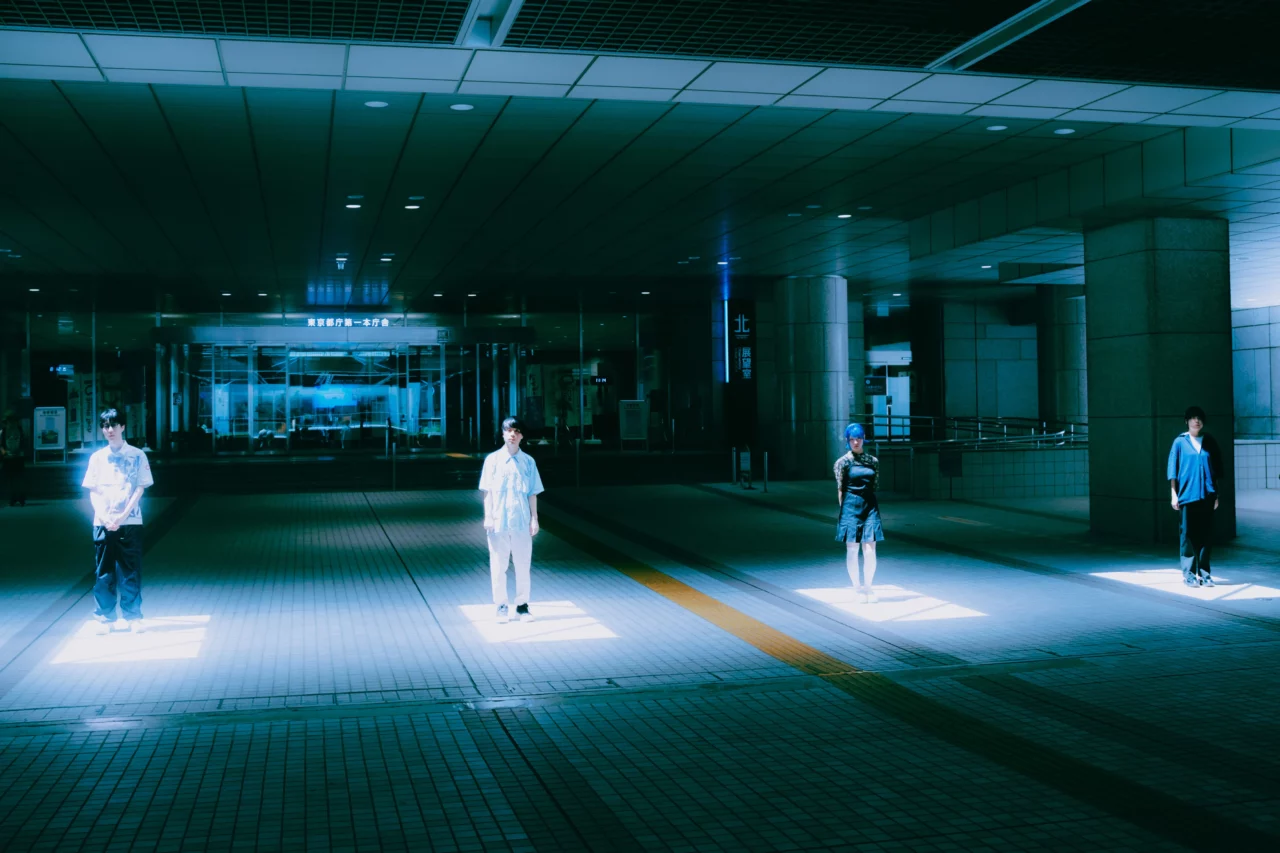
LAUSBUB’s First Encounter with Pasocom Music Club in Middle School
Despite a generational gap between the two groups, when did Pasocom Music Club first come across LAUSBUB?
Nishiyama:It’s a bit cliché, but it was when LAUSBUB’s “Telefon” went viral in 2021. I thought, “There are young people doing this kind of music now.” It didn’t feel like mere nostalgia or retroism; it seemed like something fresh and new.
Shibata: That was the timing for me as well. I was really intrigued by their look with the KORG MS-20 mini.
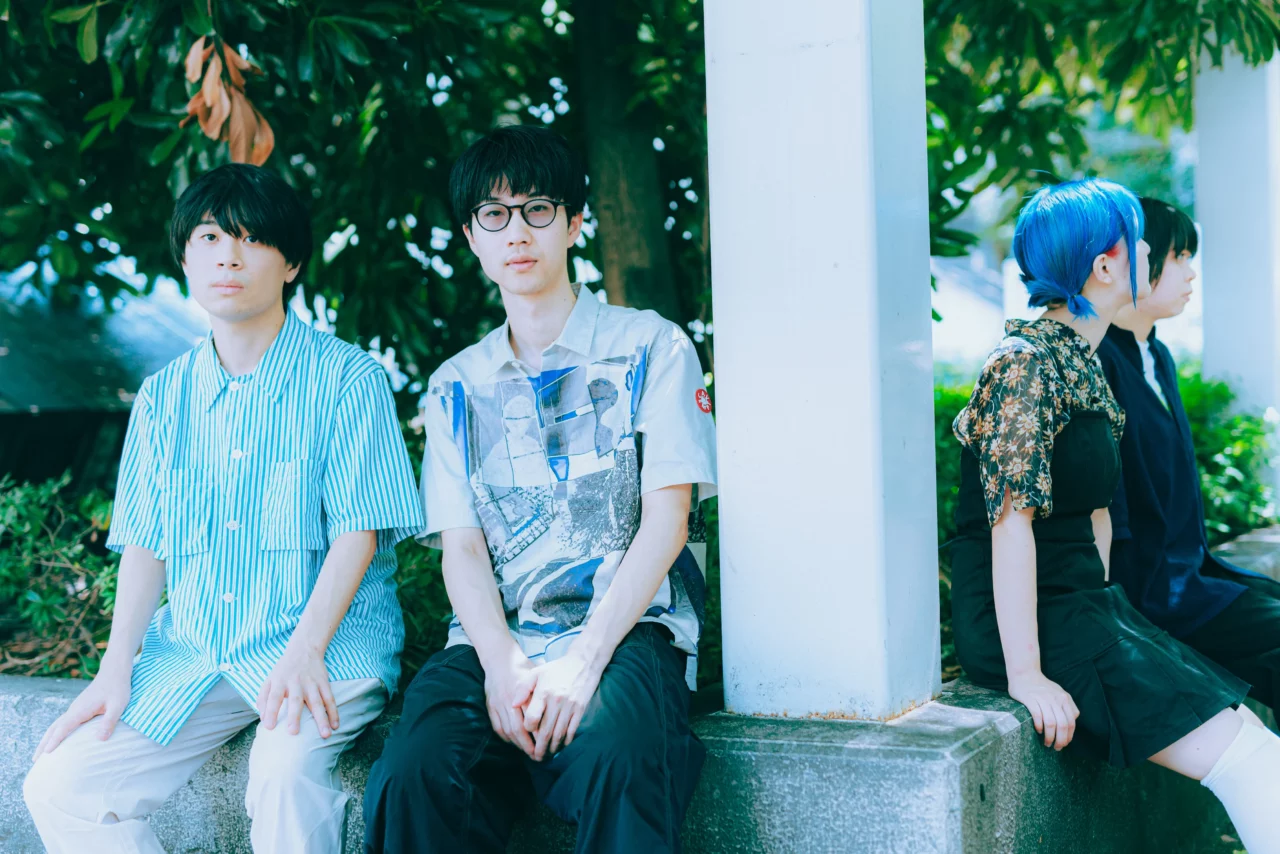
Listen to Love Flutter (Listen on Apple Music / Listen on Spotify)
When did you first hear of PaSound?
Takahashi: I first heard it in middle school. Once I started high school, Riko Iwai introduced me to genres like techno and electronic music, which made me pay more attention to it.
Iwai: I first heard it on SoundCloud when I started using Twitter in middle school. Since I was already listening to YMO at that time, I remember feeling happy to see that there were people making this kind of music in the present day.
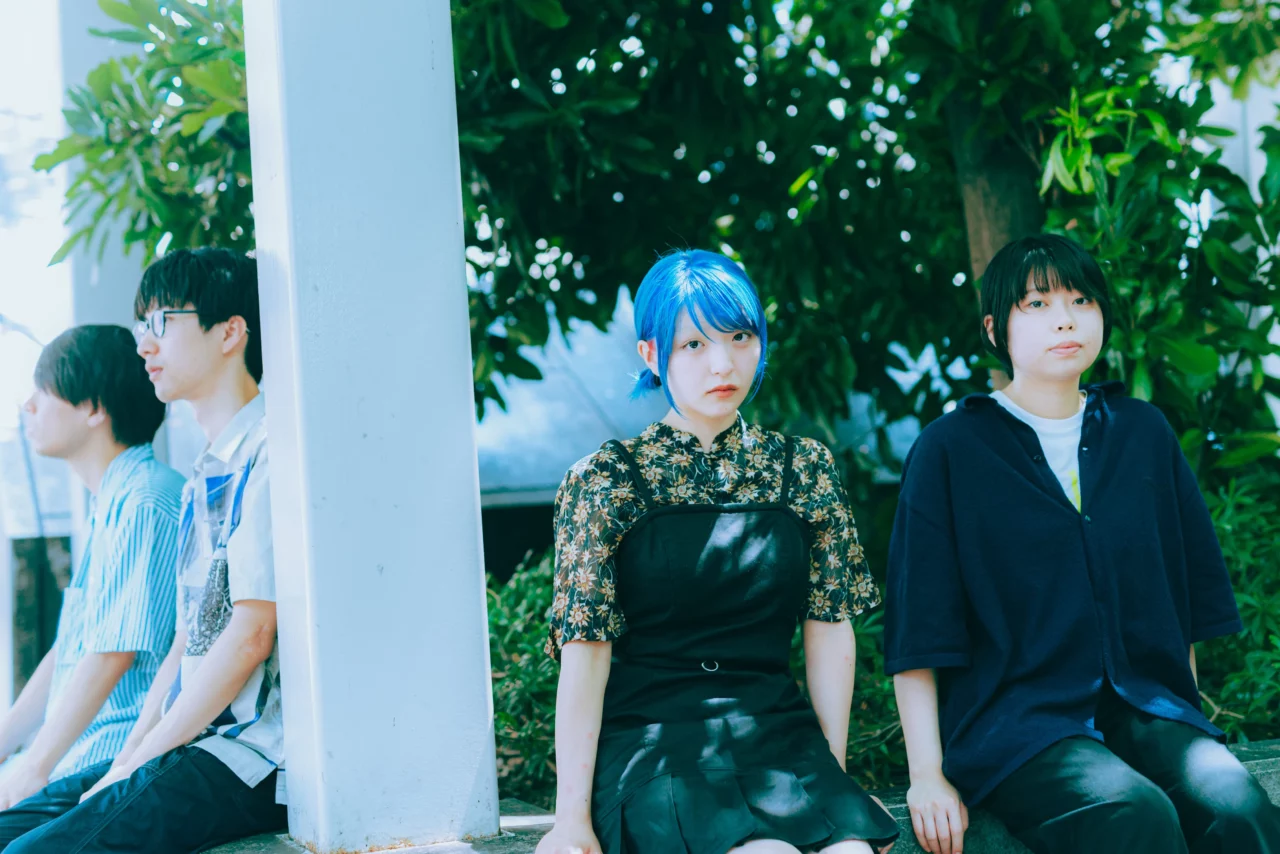
Listen to ROMP (Listen on Apple Music / Listen on Spotify)
From there, LAUSBUB emerged into the world, collaborated and performed with Pasocom Music Club, and their world continued to expand. Now, with the release of their first album “ROMP,” how did the members of Pasocom Music Club feel after listening to the album?
Nishiyama: First of all, it’s impressive how LAUSBUB has expanded their music and completed the album to this level of quality. Both Shibata and I have always wanted people to listen to our work as a cohesive album, and I was pleased to sense that same intention in “ROMP.”
Shibata: “ROMP” might be broadly categorized under terms like new wave or techno, but if you listen closely, it includes elements from various genres like Latin music. I think this reflects the way the two of them approach music. Of course, new wave and techno themselves are genres that encompass a wide range of sounds.
Certainly, “ROMP” showcases a diverse range of beat styles.
Shibata: Also, there’s a sense of ‘electronics’ in it. I find the term ‘electronics’ quite appealing. For example, in DAF, there are parts labeled as ‘electronics,’ and ROMP gives me that same broad sense of music made with synthesizers and effects. It feels like it’s been a while since I’ve encountered music that evokes that general sense of “electronics.”
LAUSBUB: Thank you very much!
Note: DAF (Deutsch Amerikanische Freundschaft) is a music unit centered around vocalist Gabi Delgado-Lopez and electronics specialist Robert Görl. Iwai has previously mentioned in an interview, “I was really into DAF and even wanted to be like Gabi Delgado-Lopez at one point” (external site opens). (open external website).
From LAUSBUB’s perspective, what did you think of Pasocom Music Club’s latest release, Love Flutter?
Takahashi: Pasocom Music Club’s works always have a distinct atmosphere and concept, and this album is no different. It creates an immersive experience that draws listeners in. I’m genuinely impressed by their ability to consistently produce high-quality, cohesive work in such a short period.
Iwai: I feel the same way. If they keep producing great work at this pace, I’ll never be able to catch up…
Shibata: [laughs]
Iwai: “Love Flutter” seems to have a slightly more introspective element compared to the previous work, which I personally appreciated. In terms of sound, it features a granular texture reminiscent of Overmono and elements and trends from current electronic music similar to Mount Kimbie. It was really enjoyable to experience a work that simultaneously reflects the progression of both the modern music scene and Pasocom Music Club.
Nishiyama: Thank you for the incredibly positive feedback.
INDEX
Techno at Heart, Yet Staying True to Pop
How do the two groups describe their own music?
Nishiyama: I was once told that Pasocom Music Club seems to be avoiding genres, and I agreed with that. However, looking back, I see that ‘techno’ is a core element in our music. While “techno” can be interpreted in broad or narrow terms, if I had to describe it simply, I’d say we’re making techno music.
We aimed for “Love Flutter” to show our future direction. What we’re passionate about and striving for appears to be ‘techno,’ though I’m not sure if Shibata feels the same way.
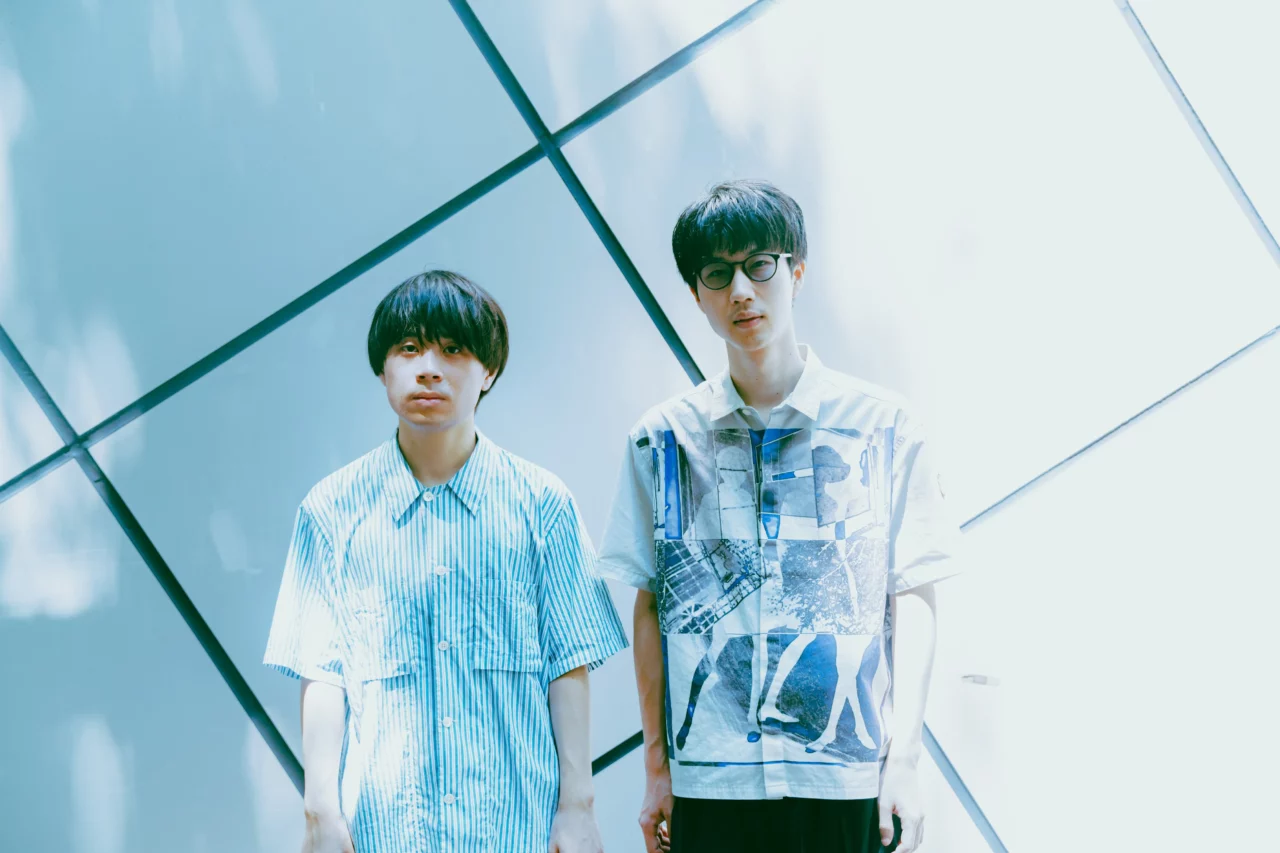
Formed in 2015, this DTM unit consists of Aoi Shibata and Manto Nishiyama, both from Osaka. They create electronic music based on a sound that makes extensive use of hardware synthesizers. In 2018, they released their first nationwide album, “DREAM WALK.” Their second album, Night Flow, released in 2019, won an award at the 12th CD Shop Awards 2020, drawing attention. They released their third album, “See-Voice,” in October 2021, and their fourth album, “FINE LINE,” in May 2023. Their fifth album, “Love Flutter,” was released on August 7, 2024.
Shibata: While I mostly agree, I think Pasocom Music Club also incorporates elements of pop music. So if someone asked about our music, I might describe it as ‘popular music created with synthesizer sounds that also features elements of dance music.
Nishiyama: So, Shibata believes that Pasocom Music Club is fundamentally pop music.
Shibata: It’s difficult to define what counts as pop music, but I do think there’s always a desire for everyone to listen to it. There’s an aspect of composing where you translate your music into something that resonates with others.
Taking all that into account, if I had to sum it up in one word, it would be “techno.” How about LAUSBUB?
Iwai: I completely agree with what the members of Pasocom Music Club are saying. I’ve recently been reminded of the broad scope of the term ‘techno.’ It seems that LAUSBUB is also engaged in translating their desired music into a pop format, similar to what Shibata mentioned. I hope to maintain that sense of balance moving forward.
LAUSBUB is often introduced as a ‘new wave techno pop band,’ isn’t it?
Iwai: We initially identified as a ‘new wave techno pop band,’ but I’ve started to feel that we’re drifting away from new wave [laughs]. It’s not quite experimental either, but when you take a step back and listen, there is a sense that LAUSBUB can still be appreciated as pop music.
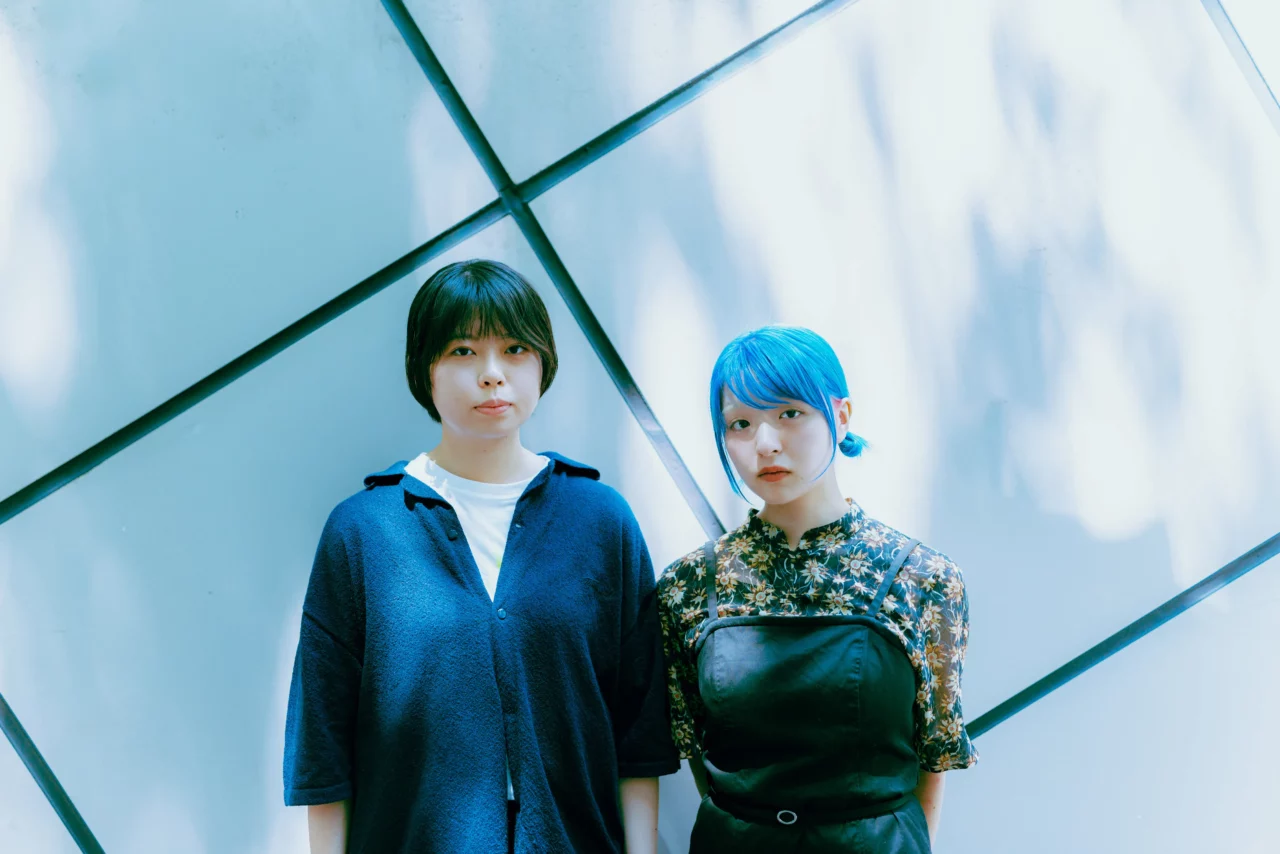
Formed in March 2020 by Riko Iwai and Mei Takahashi, who were in the same high school light music club in Sapporo, Hokkaido. They are a new wave techno pop band. On January 18, 2021, they gained explosive attention through a Twitter post and reached number one on the worldwide weekly charts on SoundCloud. They have expanded their activities, taking on roles such as hosting the original program “Far East Disco” on AIR-G’ FM Hokkaido and contributing the theme song for the Sapporo International Art Festival 2024. They released their first album, “ROMP,” in July 2024.
Takahashi: I also have a sense of uncertainty about whether LAUSBUB should be classified as new wave or pop music.
Shibata: When browsing through Bandcamp, you come across tracks that sound like they were just recorded with a sine wave, but they’re still really great. I enjoy that kind of ‘experimental progress’ music, but I also admire those who go beyond that and work on translating their music so that a wider audience can enjoy it.
INDEX
Impact of Club Culture on the Two Groups
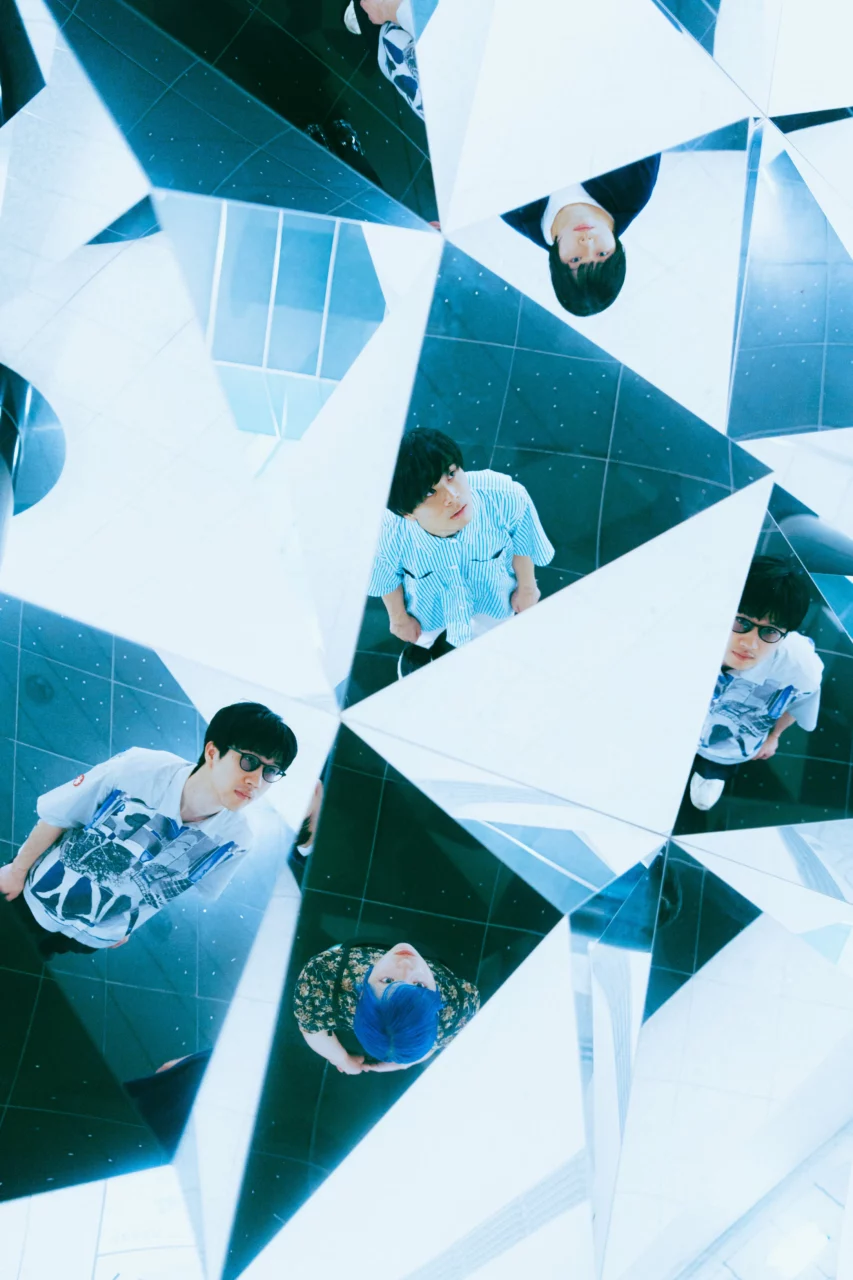
How do you view your own music in terms of dance music?
Nishiyama: I think Pasocom Music Club has gradually shifted towards dance music over the years. Initially, we weren’t very conscious of it, but since we often perform at clubs, we’re naturally influenced by DJ culture. The impact of performing in a space focused on physicality in music is significant. So, with Love Flutter, we specifically set out to create dance music.
Would you say that your experiences performing in clubs have fed back into your music production?
Shibata: As the years went by and the speaker sizes at venues grew larger, we became increasingly aware of the importance of drums and bass.
Shibata: When creating dance music, there are general rules and common principles to follow, but I also believe that everyone has their own unique sense of rhythm.
A track that I might think, “You can’t dance to this!” could be something that someone else feels, “Actually, I can dance to this.” I think there’s a personal variation in how people perceive rhythm, and that’s something I want to respect.
Nishiyama: Recently, while working together, we’ve run into situations where I have no idea when Shibata says, “This beat really makes you move” [laughs]. I think it’s a reflection of the individual differences or varying aesthetic senses that Shibata mentioned.
It seems like both of you in LAUSBUB have been getting more involved in DJing and drawing closer to club culture. Has that influence impacted your latest work?
Iwai: I think our experiences in clubs and DJing are reflected in the album. Especially after performing at club asia’s anniversary event ‘F F F’ and watching live shows by Pasocom Music Club and imai, I learned how certain sounds create specific effects with that kind of sound system. This has made me more conscious of how the music will feel when played in a particular environment, especially in a club setting.
You also DJ at clubs in your hometown of Sapporo, right?
Iwai: In Sapporo, it’s common for various music genres to come together at a single event. Being nurtured by places like Precious Hall and PROVO, which are like musical fortresses in Sapporo, has definitely influenced our own expression.
Takahashi: During the production of ‘ROMP,’ I frequently visited clubs in Sapporo. The music scene in Sapporo is really tight-knit, with people from different music communities blending together. I feel that being in such an environment is reflected in the way we approached the production.
In regional areas, where there are fewer people involved in music, different genres tend to come together more naturally. I understand this well from my own experience in Shikoku until recently. I imagine Pasocom Music Club had a similar experience in their hometown of Kansai.
Yes, that’s right. Osaka is still relatively a big city, so there was a bit more variety in genres. However, at the time, there were still few people doing music like ours on a national level, and there weren’t many people using computers for live performances. Because of this, there were only a few places where we could perform, and it often felt like we were thrown into a mix of various genres. We ended up performing alongside bands and other acts.
But in the end, this environment became a significant influence on our music. Old Osaka was a vibrant mix of indie rock, net labels, experimental music, and early lo-fi house and city pop trends. It was really stimulating. An organizer named zico was behind many of these events.
Note: zico is the organizer behind parties like POW and OZ. On December 29, 2017, the joint event POW and TØNO held at Minami-Horie SOCORE FACTORY featured performances by Pasocom Music Club, Yousuke Yukimatsu, Shokuhin Matsuri a.k.a. foodman, and Le Makeup. (open external site).


















